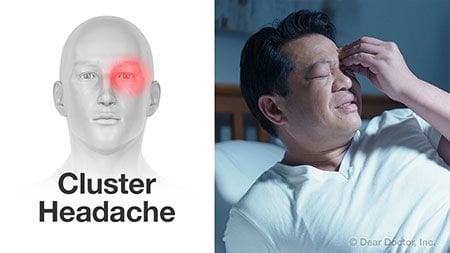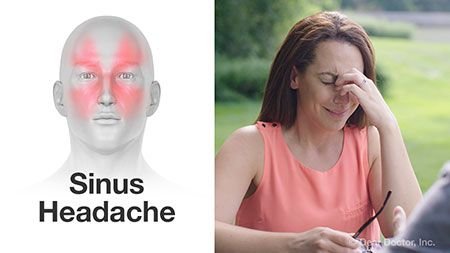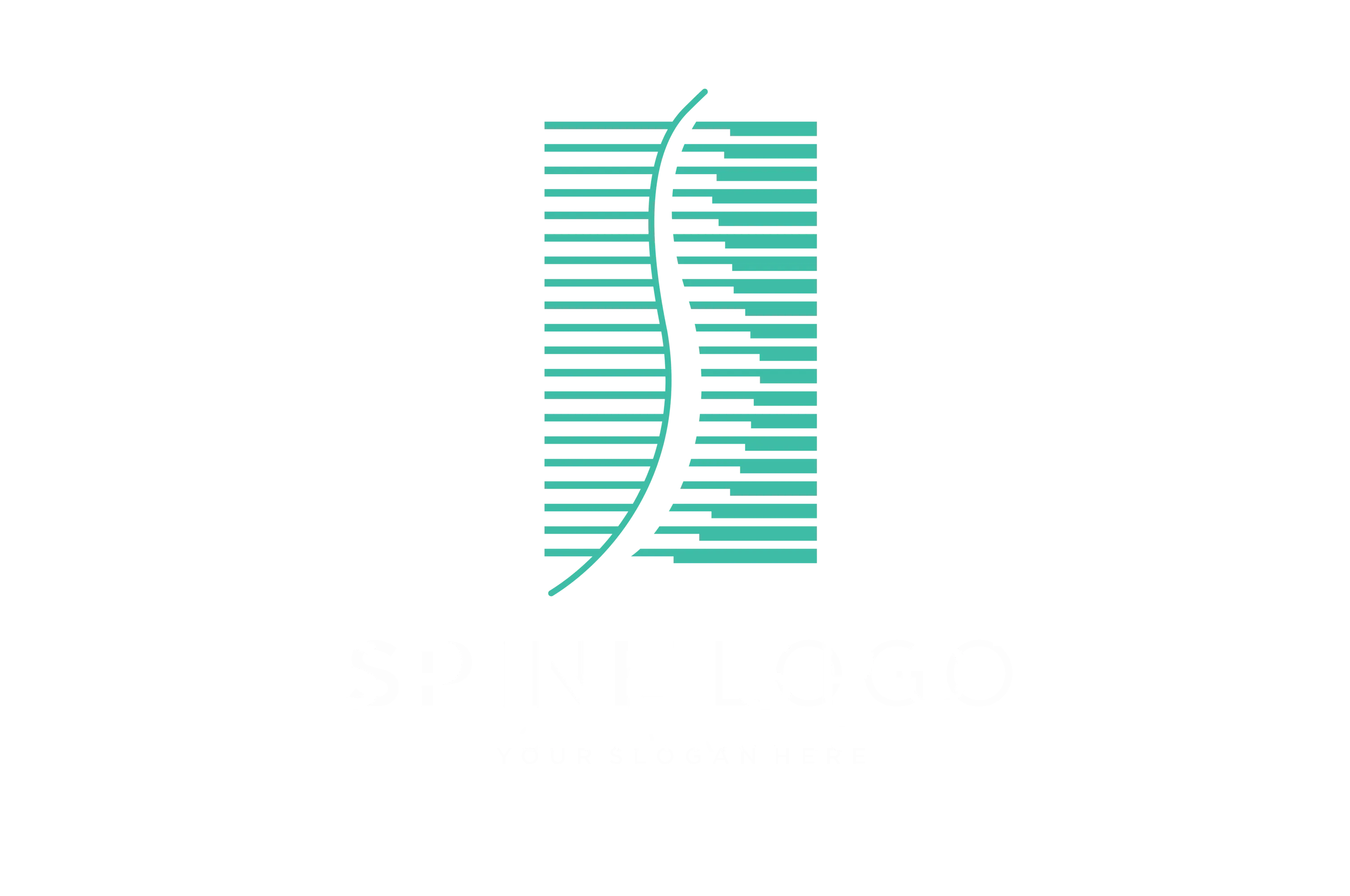What are the types of Headaches?
Many people are not aware that chiropractors can evaluate and treat headaches. Let’s look at some common types of headaches, their causes, and how chiropractic care can help.
Types of Headaches
To figure out which type of headache you are dealing with, chiropractors will ask you questions about how often you get headaches, how long they last, what they feel like, if there is anything that “triggers” or starts them, and if anything helps them go away. We will also examine your head and neck to see if tight muscles could be contributing to your headaches.
Tension Headaches
Tension headaches are very common and can be caused by emotional or physical stress, which leads to tension in the neck, shoulders, and/or base of the skull. Many people describe these headaches as feeling like a “tight band” around the head. Tension headaches can be acute—that is, they come on quickly and last a short time—or chronic, where they last three days or longer after coming on quickly or developing over a longer period of time. Chronic tension headaches may be “episodic,” meaning they come and go frequently within a certain period of time; a patient may complain of “three tension headaches a week,” for example. This type of headache commonly comes on after a stressful day or at the end of a work day. Often, patients find relief for tension headaches with chiropractic adjustments, myofascial release, and/or massage therapy. In addition, chiropractors may recommend ways to reduce physical, emotional, or mental stress.
Migraine Headaches
Migraine headaches feel like an intense throbbing or pulsing pain and can affect one or both sides of the head. Migraines can occur with or without an aura, which is described as visual disturbances such as flashes of light or blind spots in the vision. Some patients report nausea, light, and/or sound sensitivity with a migraine. Migraine headaches usually happen more than once (a recurring headache) and last from four hours to three days. We may find that joints in your neck are causing or contributing to your migraine. If this is the case, chiropractic adjustments and working on the muscles of the head and neck can often reduce the intensity and duration of the migraine.
Cluster Headaches
Cluster headaches are a type of headache that generally causes intense pain over or around one eye or one side of the head, and sometimes causes a runny nose or eyes. Unlike migraines, which often come on gradually, cluster headaches typically come on suddenly and often wake a person from sleep. They can last anywhere from 15 minutes to a few hours, and it’s possible to have as many as eight in a single day! Cluster headaches come in a series, or cluster, over a period of weeks or months and are more common among men than women.
Sinus Headaches
Sinus headaches are caused by pressure that builds up in the sinuses, often because of a cold, allergies, or weather changes. There are chiropractic techniques for the sinuses, neck, and skull that can help decrease sinus pressure. A chiropractor may detect an obstruction that has an impact on your sinuses. For example, sometimes when a neck vertebra is out of alignment, it may affect drainage from your sinuses. So before you reach for an over-the-counter sinus medication, talk to your chiropractor about how chiropractic adjustments help relieve sinus pressure naturally. Chiropractors may also provide nutritional counseling or recommend massage therapy.
Causes of Headaches
The most common cause of headaches is muscle tension, often brought on by mental or emotional stress or poor posture. Other physical causes for headaches include high blood pressure, hormone fluctuations, eye strain, and increased pressure in the skull. There are specific chiropractic adjustments that have been shown to help lower blood pressure. If it is suspected that your headaches might be coming from increased pressure inside your skull, we may request that you get an MRI or CT scan to get a better picture or refer you to your primary care physician.
Another common cause for headaches that many of us don’t think about right away is chemical exposure. Chemical exposure may come from certain foods we eat, medicines and supplements we take, and chemicals in our everyday environment (household cleaners, skin care products, air pollution). Many people have headaches caused by sugar, food additives, medicines etc. Your chiropractor can help you figure out what “chemicals” you’re around every day that might be causing or contributing to your headaches.
Research supports that chiropractic treatment can be an effective treatment option for headache pain. If you suffer from frequent headaches, schedule an appointment today.
Common Headache Questions
Q: Can a chiropractor treat migraines?
A: Yes, chiropractors can provide treatment for migraines through spinal manipulation and other chiropractic techniques.
Q: What should I do if I have a tension-type headache?
A: If you experience tension-type headaches, it is advisable to seek medical advice and explore treatment options, which may include chiropractic care.
Q: How can chiropractic treatment help prevent migraines?
A: Chiropractic treatment may help prevent migraines through manipulative therapy, lifestyle changes, and a tailored treatment plan.
Q: Are there any known effects of chiropractic spinal manipulative therapy on migraines?
A: Evidence suggests that chiropractic spinal manipulative therapy can have positive effects on the treatment of migraines and cervicogenic headaches.
Q: Should I see a doctor before seeking chiropractic care for my migraines?
A: It is important to consult with a healthcare professional, such as a doctor, before pursuing chiropractic care for migraines to ensure appropriate treatment and management.
Q: What are the possible benefits of chiropractic treatment for migraine sufferers?
A: Chiropractic treatment may offer benefits such as symptom relief, prevention of chronic migraines, and complementary treatment options to traditional medical approaches.
Q: Can chiropractic care be a part of the treatment plan for people with migraines?
A: Yes, chiropractic care can be included as a part of a comprehensive treatment plan for people with migraines, addressing specific needs and contributing to overall management.
Q: What role does chiropractic care play in the treatment of tension-type headaches?
A: Chiropractic care can play a role in the treatment of tension-type headaches through manipulative therapy, addressing issues that may originate in the neck, and suggesting lifestyle changes to help prevent such headaches.
Q: Can a chiropractor help with debilitate migraine and cervicogenic headaches?
A: Yes, evidence suggests that chiropractic care can offer effective treatment for debilitate migraines and cervicogenic headaches, providing relief and management options.
Q: What lifestyle changes might a chiropractor suggest to help manage migraines?
A: A chiropractor may suggest lifestyle changes such as postural improvements, stress management techniques, and ergonomic adjustments as part of a comprehensive approach to managing migraines.
More Conditions Treated
- Common Chiropractic Conditions
- Tennis Elbow
- Thoracic Outlet Syndrome
- TMJ
- Wrist Pain
- Scoliosis
- Spinal Stenosis
- Strains & Sprains
- Tech Neck/ Text Neck
- Tendonitis
- Pinched Nerve
- Sciatica
- Neck Pain
- Neuropathy
- Osteoarthritis
- Pregnancy Pain
- Joint Pain
- Mid/Upper Back Pain
- Posture Problems
- Golf Elbow
- Introduction to Common Conditions
- Plantar Fasciitis
- Forward Head Posture
- Lower Back Pain
- Pitcher's Elbow
- Fibromyalgia
- Hip Pain
- Knee Pain
- Carpal Tunnel Syndrome
- Dizziness & Vertigo
- Headache & Migraine
- Ear & Sinus Pain
- Degenerative Disc Disease
- Back Pain
- Bulging & Herniated Disc







